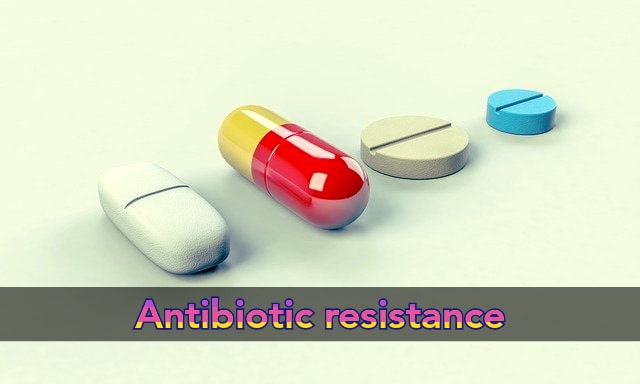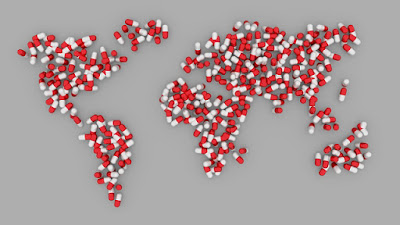Even though you have ten times more bacterial cells inside your body than your human body cells, many of these bacteria are harmless or useless, helping the digestive and immune system. But there are small, bad apples that can cause serious infections, ranging from minor problems caused by a deadly epidemic. Fortunately, there are amazing drugs designed to fight infections. Composed from chemicals or naturally occurring in substances such as fungi, these antibiotics kill bacteria that disrupt the cell wall or disrupt vital processes such as protein synthesis, all while leaving human cells uninjured.
The advent of antibiotics during the 20th century has made it possible for many of the world's most serious illnesses to be curable. But today, our antibiotics are becoming less effective. Did something go wrong that made them stop working? The problem is not with antibiotics but with bacteria being made to fight them, and the reason lies in Darwin's theory of natural selection. Like all other living things, each bacteriacan evolves randomly. Many of these changes are dangerous or trivial, but from time to time, another comes along that gives the body its chance to survive. And with bacteria, the genetic mutations that make you resistant to certain antibiotics give you an edge. As drug-resistant germs are killed, which is especially true in antibiotic-rich areas, such as hospitals, there is plenty of space and resources for those who are resistant to the family to thrive, surpassing only the modified genes that help them do so. Reincarnation is not the only way to do this. Some can release their DNA from death when it is absorbed by other bacteria, while others use a process called compounding, by connecting through a pilito to share their genes. Over time, resistant strains increase, creating all the major resistance bacteria.
So how long do we have before these superbugs take over?
In some bacteria, it has already happened. For example, a certain staphylococcus aureus, which causes everything from skin infections to pneumonia and sepsis, has evolved into MRSA, into beta-lactam antibacterial drugs, such as penicillin, methicillin, and oxacillin.
Thanks to a substitute for the proteinbeta-lactams that normally target and bind to it, MRSA can continue to keep its cell walls uninterrupted. Some large bacteria, such as salmonella, sometimes produce enzymes such as beta-lactams that break down antibiotic invaders before they cause damage, and Eg: like quinolones, by firmly launching any attackers that manage to get into the cell. But there is good news. Scientists are working to stay one step ahead of germs, and although the development of new antibiotics has slowed down in recent years, the World Health Organization has begun to develop new therapies for new therapies. Some scientists are exploring alternative therapies, such as pager therapy using antibiotics. Most importantly, preventing the overuse and unwanted use of antibiotics, such as minor infections that can be resolved on their own, as well as changing treatment options to prevent infection in the hospital, can have a significant impact on keeping resistant bacteria alive as a competition for resistant germs. In the fight against stereotypes, decomposition can sometimes be more effective than evolutionary arm races.
Conclusion: As I already mentioned that we have to prevent unnecessary use of antibiotics, because due to that reason particular microbe is resistance in patients body will treating them. We can develop so many drugs against particular microbe but due to lack of resistance in between devolpment of new antibiotic many patients will lose their lives. Another issue is antibiotics are not only use for human it also use in food industry animal like chicken and beef etc. That way also we creating resistance by over consuming of chemical, which are use for manufacturing these drugs. Our food also create immune response on our body by providing us different nutrients. So try to consume organic food, excessive use of chemical in food also huge problem for us. Drugs resistance always be a problem because all living organisms finds a way to survive and because of it only till now we developed, like the same way only all microorganisms are surviving.
Thank for reading. For more follow- what maybe you don't know about health and politics





0 Comments